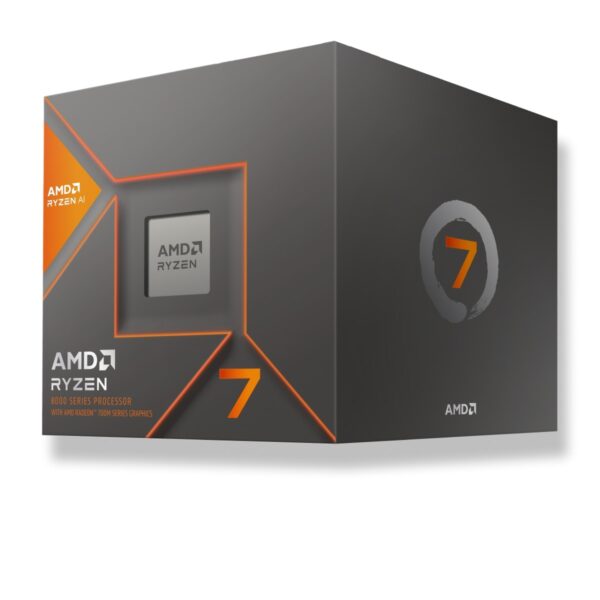-10%






AMD Ryzen 7 8700F 8 Cores 16 Threads 65 W TDP 4.1 GHz Frequency 5 GHz Boost Phoenix Codename Socket AM5
$299.00 Original price was: $299.00.$270.00Current price is: $270.00.
Guaranteed Safe Checkout

| Socket: | AMD Socket AM5 |
|---|---|
| Foundry: | TSMC |
| Process Size: | 4 nm |
| Transistors: | 25,000 million |
| Die Size: | 178 mm² |
| Package: | FC-LGA1718 |
| tJMax: | 95°C |
| Market: | Desktop |
|---|---|
| Production Status: | Active |
| Release Date: | Apr 1st, 2024 |
| Retail Availability: | May 14th, 2024 |
| Launch Price: | $270 |
| Part#: | 100-000001590 |
| Frequency: | 4.1 GHz |
|---|---|
| Turbo Clock: | up to 5 GHz |
| Base Clock: | 100 MHz |
| Multiplier: | 41.0x |
| Multiplier Unlocked: | Yes |
| XDNA NPU: | 16 TOPS |
| TDP: | 65 W |
| Configurable TDP: | 45 W |
| PPT: | 61-88 W |
| Codename: | Phoenix |
|---|---|
| Generation: | Ryzen 7 (Zen 4 (Phoenix)) |
| Memory Support: | DDR5 |
| Rated Speed: | 5200 MT/s |
| Memory Bus: | Dual-channel |
| ECC Memory: | No |
| PCI-Express: | Gen 4, 20 Lanes (CPU only) |
| Chipsets: | X670E, X670, B650E, B650, A620 |
| # of Cores: | 8 |
|---|---|
| # of Threads: | 16 |
| SMP # CPUs: | 1 |
| Integrated Graphics: | N/A |
| Cache L1: | 64 KB (per core) |
|---|---|
| Cache L2: | 1 MB (per core) |
| Cache L3: | 16 MB (shared) |
|
| Radeon graphics engine disabled. |
No account yet?
Create an Account
Reviews
There are no reviews yet.